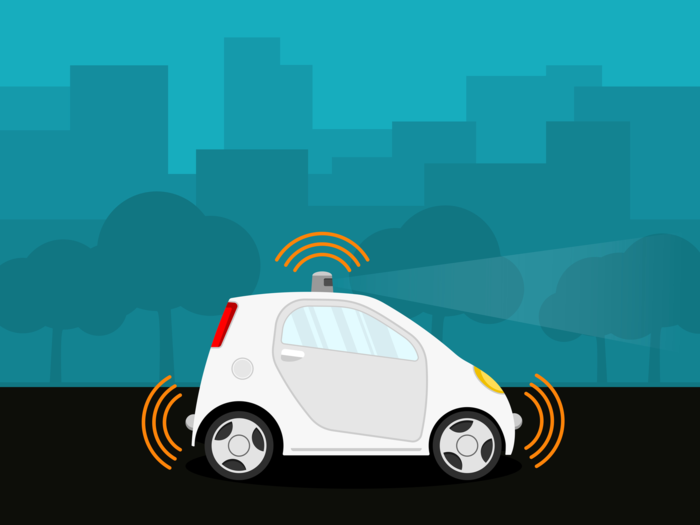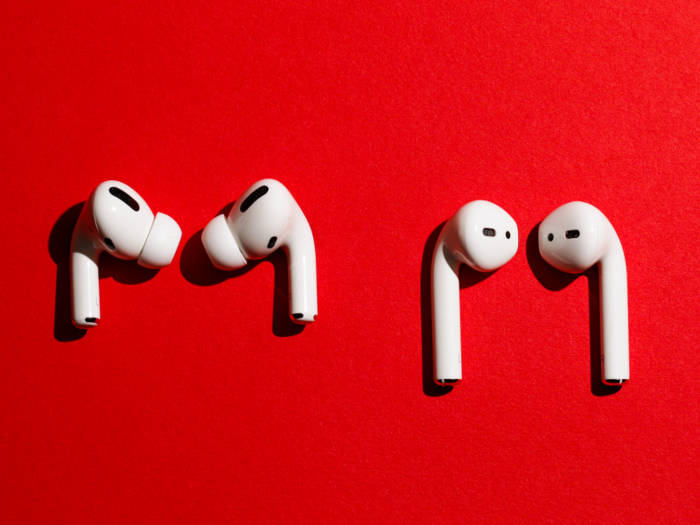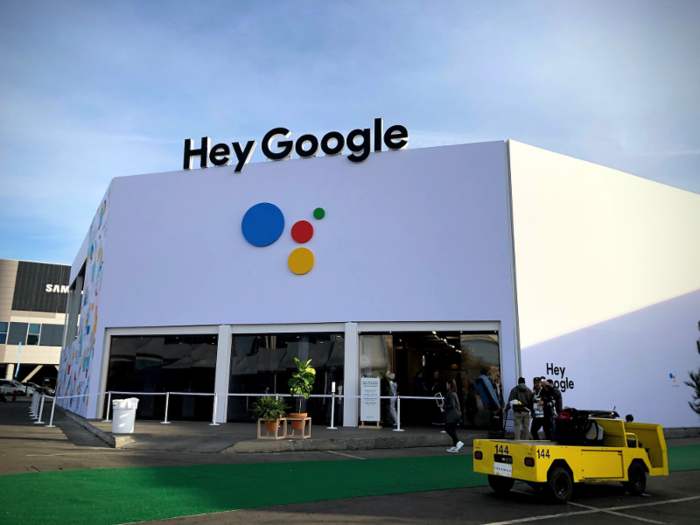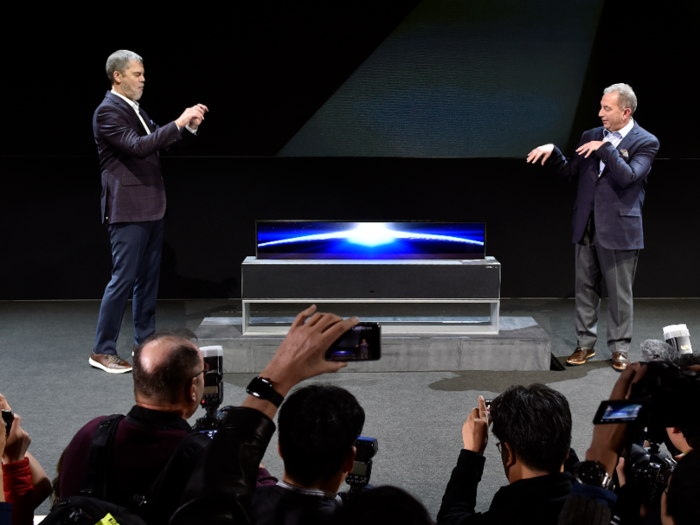- Home
- slideshows
- miscellaneous
- The biggest tech event of the year is right around the corner, and it'll give us our first glimpse at the trends that will define 2020 - here's what to expect
The biggest tech event of the year is right around the corner, and it'll give us our first glimpse at the trends that will define 2020 - here's what to expect
More TVs with 8K resolution and micro LED displays

Self-driving car technology, connected vehicles, and more electric scooters and bikes

There's likely to be no shortage of auto industry announcements at CES in 2020, as companies such as Hyundai, Toyota, and Byton, among others, have scheduled press events set to take place during the week.
At this year's show, we're likely to see demos involving 5G connectivity and how the next-generation wireless network will impact the connected car experience, according to Greengart. There's also a chance we'll see more automakers bringing Level 2 self-driving systems to their premium vehicle lines, says Moorhead.
Level 2 refers to partially automated autopilot systems that can steer, accelerate, and brake in certain situations but still require a driver for tasks like responding to traffic lights and changing lanes. That's as defined by standards from SAE International, a global association of engineers and technical experts in the aerospace, automotive, and commercial vehicle industries.
It's not just carmakers that are expected to establish a big presence at CES in 2020. The show is likely to be filled with plenty of micro-mobility vehicles, like electric bikes and skateboards. That's not necessarily a new trend to CES 2020; electric scooters and skateboards have surfaced at the show over the past several years. But we're likely to see that only grow in 2020, says Greengart.
"Often times, CES is where you see the efforts of a technology and how it's making its way into the market," said Greengart. "So in this case, it's the ubiquity of battery technologies and applying that to small electric motors."
More companies trying to challenge Apple's dominance in the wearables industry

Apple may be the leader of the wearable technology industry, but a growing number of competitors will be looking to challenge that at CES.
"The entire industry is trying to figure out, how do they compete with Apple," said Moorhead. "Apple is more expensive yet it has the unit market share dominance, and that's kind of unheard of."
The popularity of Apple's AirPods combined with new technology like Qualcomm's system-on-a-chip for wireless earbuds will likely fuel growth in this area at CES, says Greengart. Qualcomm's chip, which it announced last year, is designed to help companies quickly and easily develop small, wearable Bluetooth devices.
"I'm expecting literally dozens of wireless earbuds to try to compete with Apple at the show," Greengart said. "I think this is probably peak wireless earbud year."
Other than AirPod-like wireless earbuds, we'll probably see plenty of health and wellness-oriented wearable gadgets as well — another trend that's persisted at CES over the past several years.
Wearable devices that can measure a user's caloric intake in addition to metrics like sleep and exercise could make an appearance on the show floor, says Moorhead, while Greengart added that we may see new devices that are meant to help those with hearing impairments but resemble everyday earbuds.
Google, Amazon, and Samsung will continue battling over the smart home

One of the biggest themes at CES in recent years has been the addition of voice-controlled assistants from Amazon and Google in just about everything — from your washing machine to your oven and television.
As voice assistants have become a stronger force at the show, companies like Amazon and Google — which traditionally haven't had a huge presence at CES in years past — have slowly started to become the main attraction. Google even set up its own theme park ride at last year's show to draw attention to its own digital helper, the Google Assistant.
"If you can put Alexa in it, you will," said Greengart. "That's definitely been a huge trend, and we're going to continue to see that."
Amazon's dominance in this space is especially important because it essentially defines their presence in the consumer technology industry, as Moorhead notes. Amazon, unlike Google, Apple, and Samsung, doesn't have a presence in the smartphone or PC market.
"What Amazon really wants is that lock into an ecosystem," Moorhead said.
But above all else, CES is exactly what its original name implies — a show

CES typically serves as a hype machine for companies large and small, whether it's the Amazons and Googles of the world or small accessory makers, to flaunt their products and show the world where they're investing their time and resources.
In 2020, the industry happens to be in the middle of a cycle as it transitions to whatever the next major breakthrough may be, much like the transition from feature phones to modern smartphones. according to Nguyen.
What that next big thing will be is unclear — many companies have shown interest in augmented reality glasses and other wearable gadgets. But whatever it is, that breakthrough isn't likely to arrive in 2020, says Nguyen.
"I think it will be a while, at least a couple of more years, before we see that next big thing that consumers will adopt in mass," he said.
Popular Right Now
Advertisement